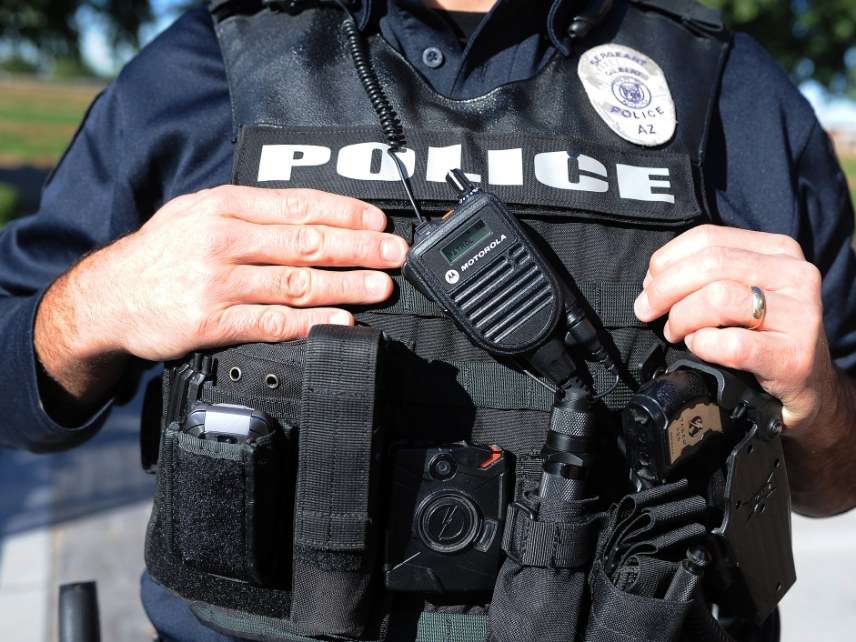Los Angeles Reverses Course on Police Body Camera Secrecy
A new plan would release footage in cases of officer-involved shootings and use of force.

Los Angeles may be about to reverse course and approve a plan that would make public body-camera footage of some police incidents.
The Los Angeles Police Department has been operating under a policy that treats police body-camera recordings as though they are not public records. As a result, the LAPD has absolutely refused to release such recordings to the public without a court order.
The LAPD persisted with this policy even after getting a $1 million federal grant to pay for the body cameras. So the taxpayers shelled out for the expensive system but officials refused to provide the government transparency that was the reason for demanding the cameras in the first place.
Under a new policy that the city's Police Commission is expected to approve today, the LAPD will release video evidence of what they describe as a "critical incident" within 45 days, or even earlier if the police chief decides it's in the public interest.
The policy defines a "critical incident" as: Any officer-involved shooting, regardless of whether anybody was hit; any use of force resulting in death or bodily injury requiring hospitalization; deaths in custody (unless there's no preliminary evidence of use of force, misconduct, or violent behavior by the detainee); and any other encounter that the police chief or the commission deems in the public interest.
The policy also includes privacy protections to safeguard the identities of juveniles and victims of some crimes, including redactions and blurring of faces as necessary. The policy also allows for the delay of video release to protect the safety of people (including police officers involved) and to protect sources of ongoing investigations. The policy requires specific, fact-based explanations for any delay request and requires unanimous approval by the police chief and the commission. We will have to see how that actually gets implemented in practice.
This is an excellent first step in moving away from terrible policies that subvert the purposes of body cameras, which are to help both document what happens in encounters between police and citizens and to properly hold all parties involved for misbehavior.
We've seen what has happened in North Carolina as a result of a state law that shields body camera footage from public records laws unless judges order their release. In Greensboro, police and a local judge blocked the release of footage of a teen's violent arrest by police. The judge said this was to protect the reputation of the arrested teen and his family, even though the family itself was petitioning the court for its release. A police officer in Asheville, meanwhile, faces charges for beating an alleged jaywalker, but only after the body camera footage was leaked to a media outlet.
Even under the LAPD's restrictive policy, we were starting to see leaks. Last November, footage got out that seemed to reveal a police officer planting cocaine on a suspect stopped for a hit-and-run crash. Note that such video footage still would not necessarily be released under the new policy, so there's still more work to be done.
Read the policy draft here.


Show Comments (18)